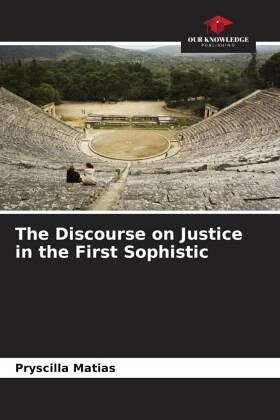
The Discourse on Justice in the First Sophistic
Versandkostenfrei!
Versandfertig in 6-10 Tagen
27,99 €
inkl. MwSt.

PAYBACK Punkte
14 °P sammeln!
The main purpose of this work is to overcome the view that has persisted throughout the history of philosophy of the Sophists, thinkers of the 5th century BC, as simply disinterested in justice and truth, and as opponents of philosophers such as Socrates, Plato and Aristotle. The book begins by problematising the sources and accounts of these thinkers, reconstructing their ideas in view of the whole context of conflict and change in which they found themselves, emerging as true representatives of the new democratic order. Special attention is paid to their influence on direct democracy in Anci...
The main purpose of this work is to overcome the view that has persisted throughout the history of philosophy of the Sophists, thinkers of the 5th century BC, as simply disinterested in justice and truth, and as opponents of philosophers such as Socrates, Plato and Aristotle. The book begins by problematising the sources and accounts of these thinkers, reconstructing their ideas in view of the whole context of conflict and change in which they found themselves, emerging as true representatives of the new democratic order. Special attention is paid to their influence on direct democracy in Ancient Greece and their importance for the field of law, making it clear that they were really concerned with legal issues. These thinkers had conceptions of justice that, although relativistic, were not arbitrary. There are various criteria mentioned by them regarding justice, which are commented on in this book. In addition, various other legal themes discussed by the Sophists are addressed, such as the distinction between phýsis and nómos, various criticisms of systems of power and discussions on education and legal techniques.












